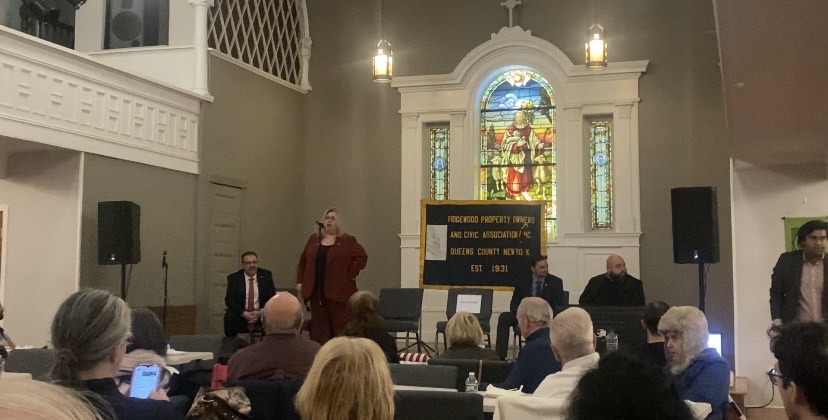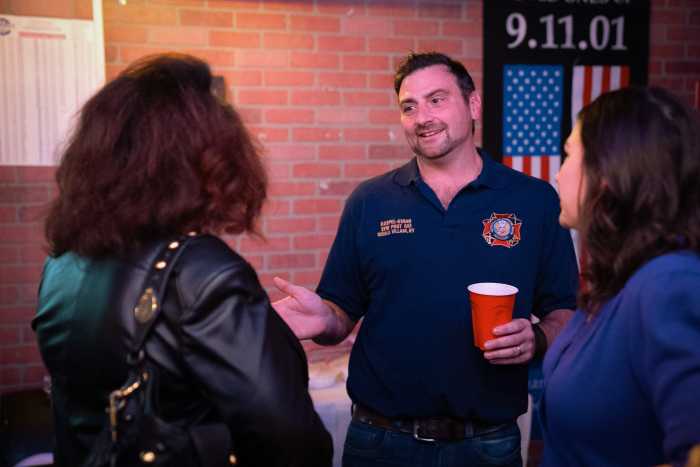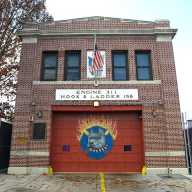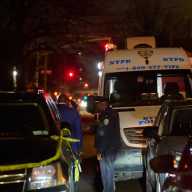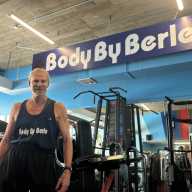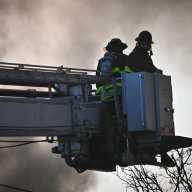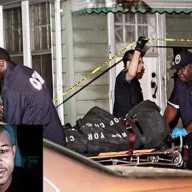Five candidates vying for the District 30 City Council seat faced off during a lively and, at times, contentious forum hosted by the Ridgewood Property Owners and Civic Association (POCA) on Thursday, April 3. The event, held at Ridgewood Presbyterian Church, drew a packed audience of residents eager to hear candidates’ views on key local issues.
Candidates Dermot Smyth, Phil Wong, Alicia Vaichunas, Paul Pogozelski, and Fr. Mike Lopez shared the stage, offering sharply contrasting perspectives on education funding, senior services, and transportation solutions.
The forum opened with a question on education, focusing on the city’s projected $39,000 per student spending in 2025—more than double the national average of $16,000. Candidates were asked how they would ensure that students graduate prepared for college or the workforce.
Fr. Mike Lopez, who has a background in Catholic education, emphasized the need for a holistic strategy that includes wraparound services. “We can’t talk about student outcomes without talking about the challenges students face at home and in their communities,” Lopez said.
The forum was part of POCA’s ongoing effort to inform residents and encourage civic engagement ahead of the upcoming City Council election. Additional topics included proposals to improve access to senior services and ease traffic congestion throughout Ridgewood and surrounding neighborhoods.
Candidates often diverged on both the scale of the problems and the solutions they proposed, underscoring the stakes of the race in a district that spans Ridgewood, Maspeth, Middle Village, Glendale, Elmhurst and Rego Park.
The evening marked one of the first public gatherings where all five candidates appeared together, providing voters with a side-by-side look at how each contender would approach the district’s challenges.
“As far as the national average of spending is concerned, this is New York City. We are the most expensive city in the world. So, let’s disregard the pricing,” Lopez began.
He argued that the real issue lies in the lack of adequate support services for students.
“Children are coming to school who are not fed properly, clothed properly, and don’t have access to the proper resources. This is a problem we have seen historically throughout the education system.”
Lopez suggested that expanding educational vouchers could give parents more control over where they send their children, whether that be public or private schools. He also called for increased support in both social and familial services to help children succeed in their education.
“A child who is hungry, whose mom beat him over the head last night because he didn’t get his homework done, is not going to succeed,” he said, emphasizing the importance of providing students with the necessary resources to thrive.
Paul Pogozelski, who comes from a business background, shifted the focus toward vocational training.
“I think our class size matters,” he said, noting that the dropout rate for older students is a pressing concern. He also pointed to the challenge of rising student loan debt and how it affects the next generation’s ability to afford housing in the area.
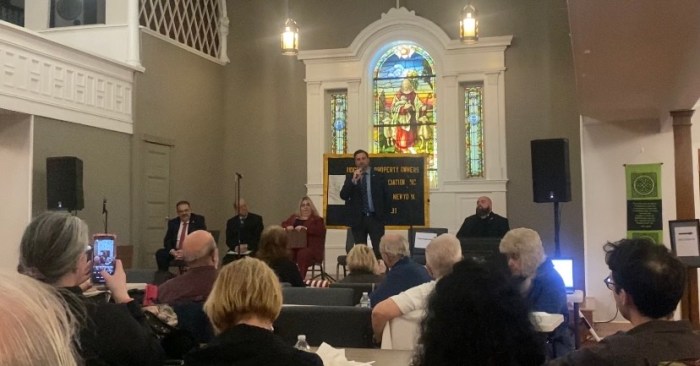
“One of the things I want to champion is vocational learning,” Pogozelski argued. “We need to teach kids that there are other paths, such as repairing cars or planes, or learning trades like plumbing and electrical work. These tasks make a lot of money.”
Alicia Vaichunas, a longtime education advocate, also brought up concerns about how education funds are allocated. She pointed out that while there is a significant budget for special education services, the money often doesn’t reach the students who need it most.
“A child with a learning difficulty should be getting more money, but that money is not being spent on those children,” Vaichunas said.
She called for greater accountability for principals and the Department of Education (DOE) to ensure that resources are being used properly.
Phil Wong, who served on a school board for four years, discussed a different issue regarding the effectiveness of the city’s educational funding system.
“The problem now is that New York City is losing track of a lot of its students. They don’t know where the kids went. They just call it a high attendance rate, but that’s bogus,” Wong stated.
He expressed frustration over the lack of transparency in the system and vowed to address it if elected.
“I will fight the city’s education committee and fix this student formula. I’ll make sure that funds are used effectively,” he said.
Dermot Smyth, who has worked in the education field for 16 years and served as a teacher for 10, offered a more nuanced perspective.
“We can’t compare apples to oranges. This is the most expensive city in the country,” Smyth explained, noting that New York City’s unique challenges, including its higher costs of living, demand a tailored approach to education. He also acknowledged that not all districts face the same challenges.
“There are certain districts in this city—due to many different socioeconomic reasons—where the children struggle,” Smyth added.
“If I’m lucky enough to get elected and represent you, I’ll be standing in one of the senior leadership positions in the City Council. I want to chair the Education Committee and advocate for the schools in this district.”
The Self-Help Senior Medical Transportation Service is a crucial issue for many residents of District 30. The candidates were asked whether they would continue to allocate the program’s funding, which is currently subject to discretionary funding from Council Member Holden’s office.
Smyth was firm in his commitment: “Absolutely. I know that there are two trips per year into the city if a senior needs it. These blanket policies are what is frustrating, whether we’re talking about the City of Yes or a whole bunch of other blanket policies.”
He argued that this was a matter of leadership and highlighted his ability to raise significant campaign funds as evidence that he would have access to the resources needed to fight for programs like Self-Help.
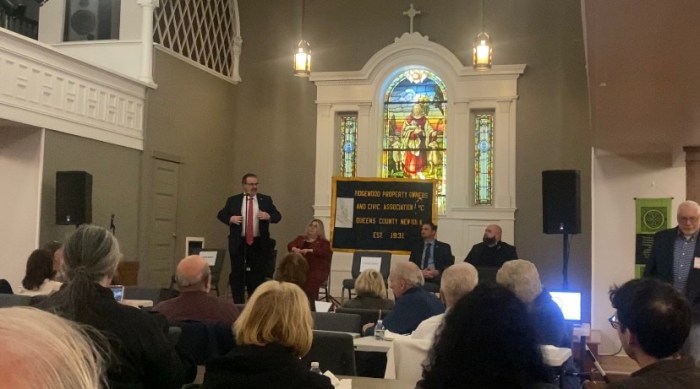
Wong, who serves as Budget Director for Council Member Holden, also supported continued funding for Self-Help.
“I funded those programs, and if elected, they will stay funded. This is discretionarily funded, so the Council Member decides this funding, not the Speaker, not the City Council,” Wong explained.
He acknowledged the challenges posed by congestion pricing, which has led to higher costs for the program’s trips.
Vaichunas also expressed support for the Self-Help program but raised concerns about the influence of unions on political decisions, questioning whether Dermot Smyth was “bought” by union contributions.
Smyth later responded to this claim: “Let me be very clear. I will stand up for sanitation, police, fire, and bus workers for every union worker in the city. There are thousands of them who choose District 30 as their home. I’m not ashamed of that.”
Nonetheless, Vaichunas emphasized the importance of the program for seniors, particularly for those who are unable to drive.
“We’ll continue to fund it. It’s very important,” she said. “If seniors need another ride, they can call my office, and we’ll make sure they get it.”
Pogozelski suggested that community volunteers could be involved in expanding the program’s reach.
“The program just needs a little bit of tinkering. You do need to get some volunteer organizations involved as well. One of the great aspects of the door-knocking campaign is that I came across members of our community who can’t get down the stairs,” he said.
Pogozelski suggested including organizations such as the Boy Scouts to assist seniors with this program and further bridge the community.
Lopez, who has extensive experience working with seniors, also supported the continuation of the Self-Help program.
He added that it was vital to ensure that seniors not only had access to these services but were also educated about them.
“There is an increasing population of seniors who have been abandoned by their own families and children and I have experience with these seniors,” Lopez remarked.
“I love the senior community. It’s one of my main focuses. I grew up without grandparents but I was very fortunate to have many adopted grandparents in my church community and in my social services.”
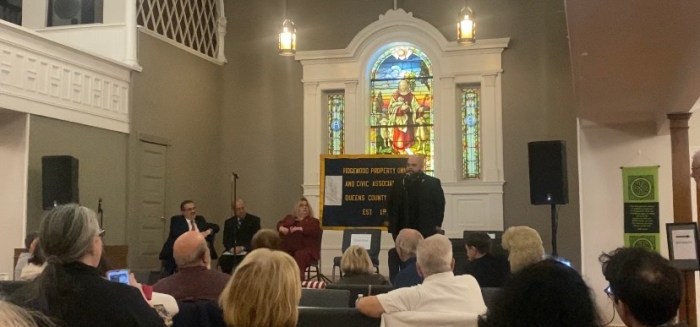
Another segment of the forum focused on congestion in Ridgewood, Glendale, and Middle Village, which has become an increasingly difficult problem as development continues and more cars flood the area.
Each candidate offered potential solutions to ease traffic and make the district more navigable.
Lopez, who has lived in Ridgewood for over 20 years, spoke about the traffic issues he’s personally faced.
“My first solo apartment at the age of 20 was on 70th Avenue between 60th and Fresh Pond. At the time, I was working as an EMT and going to school at night. I parked nowhere ever, I slept in my car most nights because I couldn’t find parking,” he said.
Lopez explained that one of his main focuses would be working with the DOT to fix traffic lighting issues on Fresh Pond Road.
Pogozelski, with his experience in trucking, proposed a solution to reduce daytime congestion by suggesting the introduction of night-time-only deliveries.
“These trucks are huge. They take up the whole street, especially on Fresh Pond, Metropolitan Avenue, and Myrtle. I did trucking for 23 years. I know all the issues that are involved with it. Giving them parking tickets isn’t going to stop them from making their deliveries,” he stated.
He also addressed the issue of unlicensed mopeds, which he believes contribute to accidents and higher insurance premiums.
Vaichunas focused on enforcement, calling for more action from the local precinct.
“We need to work with the precincts to get all unlicensed scooters off the streets. I will work with the 104 to do that,” she said.
She also advocated for better use of bus lanes, pointing out that many buses often fail to use the dedicated lanes, causing delays and worsening traffic.
Wong further emphasized that increased enforcement was necessary while also noting that unregistered e-bikes have been a serious issue.
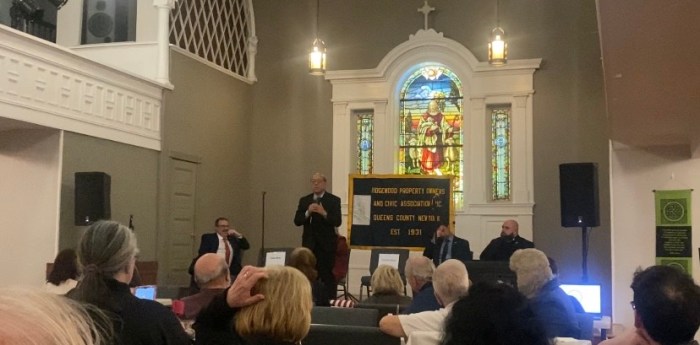
“We get a lot of phone calls about abandoned commercial vehicles, cars that should not be parked on the street overnight. We need enforcement. I’m going to ask the 104th Precinct to step up their enforcement. If vehicles don’t belong somewhere, get them towed,” he declared.
Finally, Smyth warned against further development that would exacerbate the district’s traffic issues.
“Prior to the City of Yes, when you built an apartment building, there were zoning requirements, and you also had to supply parking spots. That’s eliminated with the City of Yes,” he said.
He also opposed the idea of night-time deliveries, citing concerns about noise pollution.
The Ridgewood POCA forum provided District 30 voters with a comprehensive look at each candidate’s position on critical issues. From education reform to senior services and transportation, the candidates presented their unique visions for the district’s future.

